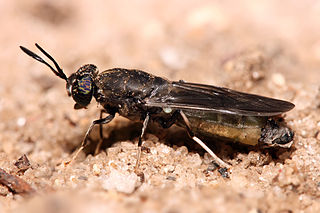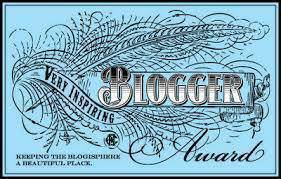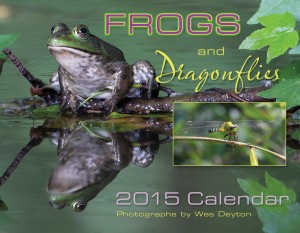Did you know that each person produces 4.4 lbs of waste per day? Can Jersey City move towards “Zero Waste?”
Yesterday, I attended the “Jersey City Moving Towards Zero Waste Conference” in City Hall and I have to say it was an eye-opening experience. The speakers and panel discussions were informative and I learned about what some of my fellow citizens are doing right here in Jersey City, as well as what is being done elsewhere.
Mayor Steven Fulop started off the conference by talking about how important this topic is and his commitment to doing what he can and I will say that the food and beverages provided for the event were accompanied by a composting bucket and two separate clearly marked waste barrels.
The Mayor introduced Judith Enck, the Regional Administrator of Region 2 of the U.S. EPA, and we learned about initiatives around the country and the world in comparison to what we aren’t yet doing here. I know that the trash is a problem across this city and something has to be done to change people’s behavior. It’s not enough for a few people to care, but we have to change the way people think about trashing their own neighborhoods, as if there’s someone behind them ready to pick it up. There isn’t.
Did you know that the Jersey City trash is picked up and shipped out of state by rail cars? What a waste of time, effort and fuel.
Here’s a current tv commercial playing about recycling from the “Keep America Beautiful” campaign:
Maybe we need a “Keep Jersey City Beautiful” or “Jersey City Proud” brand campaign?
The speakers were: Debra Italiano, Founder and Chair of SustainableJC; PJ Wasinger, Upcycle Jersey City Artist; April Buther Wennestrom, Director, Affiliate Services, Keep America Beautiful; Dennis Whittinghill, Urban Farm Expert, and DamagedWear; Albe Zakes, VP of Communications, TerraCycle; Eric Silverman, Principle, Silverman; Aaron Klein, CEO, Greener Corners; Dale J. Carpenter, Chief Sustainable Materials Management, EPA Section 2; Gary Sondermeyer, VP of Operations, Bayshore Recycling Corp.; Sondra Flite, Environmental Specialist III, Bureau of Recycling and Planning, Division of Solid and Hazardous Waste; and Norman M. Guerra, CEO, Hudson County Improvement Authority.
The big topics of the day were recycling (what and how), what some of these companies are doing to spread awareness and get people involved, and composting.
Until yesterday, I had never heard of “Black Soldier Flies.” It’s not the flies themselves that eat the waste, but the larvae. Pretty interesting!
From Wikipedia:
Black Soldier Fly Larvae Composting
 BSFL composting quickly converts manure or kitchen waste into an organic compost. In a compost bin, it can take only twenty days to start to compost. The resulting compost can be used for soil and fertilizers. After the conclusion of the compost process, the larvae can also be harvested as feed for poultry, chickens, and possibly dogs. On average a household will produce a little under a kg of food waste per day. This food waste can be composted at home using black soldier fly larvae much much faster than worms can do it. The BSFL will eat kilograms of scrap food a night in small composting units, eliminating your food waste before it can even begin to rot. This is probably the fastest composting technique. BSFL often appear naturally in worm bins, composting toilets, or compost bins. They can also be bought online. Without much added cost, these devices could be designed to also harvest BSFL.
BSFL composting quickly converts manure or kitchen waste into an organic compost. In a compost bin, it can take only twenty days to start to compost. The resulting compost can be used for soil and fertilizers. After the conclusion of the compost process, the larvae can also be harvested as feed for poultry, chickens, and possibly dogs. On average a household will produce a little under a kg of food waste per day. This food waste can be composted at home using black soldier fly larvae much much faster than worms can do it. The BSFL will eat kilograms of scrap food a night in small composting units, eliminating your food waste before it can even begin to rot. This is probably the fastest composting technique. BSFL often appear naturally in worm bins, composting toilets, or compost bins. They can also be bought online. Without much added cost, these devices could be designed to also harvest BSFL.
About Composting from Wikipedia:
Compost is organic matter that has been decomposed and recycled as a fertilizer and soil amendment. Compost is a key ingredient in organic farming. At the simplest level, the process of composting simply requires making a heap of wetted organic matter known as green waste (leaves, food waste) and waiting for the materials to break down into humus after a period of weeks or months. Modern, methodical composting is a multi-step, closely monitored process with measured inputs of water, air, and carbon- and nitrogen-rich materials. The decomposition process is aided by shredding the plant matter, adding water and ensuring proper aeration by regularly turning the mixture. Worms and fungi further break up the material. Aerobic bacteria and fungi manage the chemical process by converting the inputs into heat, carbon dioxide and ammonium. The ammonium is the form of nitrogen (NH4) used by plants. When available ammonium is not used by plants it is further converted by bacteria into nitrates (NO3) through the process of nitrification.
Compost can be rich in nutrients. It is used in gardens, landscaping, horticulture, and agriculture. The compost itself is beneficial for the land in many ways, including as a soil conditioner, a fertilizer, addition of vital humus or humic acids, and as a natural pesticide for soil. In ecosystems, compost is useful for erosion control, land and stream reclamation, wetland construction, and as landfill cover (see compost uses). Organic ingredients intended for composting can alternatively be used to generate biogas through anaerobic digestion. Anaerobic digestion is fast overtaking composting in some parts of the world (especially central Europe) as a primary means of downcycling waste organic matter.
— Susan Newman, founder, Frogs Are Green
Are you recycling and composting? Please share what you are doing to keep your neighborhood beautiful.
 I want to thank Lauri Fortino, children’s book author and library assistant, who writes a blog called Frog On A Blog for nominating Frogs Are Green for the Very Inspiring Blogger Award! Starting 2015 off right! Her book, The Peddler’s Bed is coming in the Fall!
I want to thank Lauri Fortino, children’s book author and library assistant, who writes a blog called Frog On A Blog for nominating Frogs Are Green for the Very Inspiring Blogger Award! Starting 2015 off right! Her book, The Peddler’s Bed is coming in the Fall!


